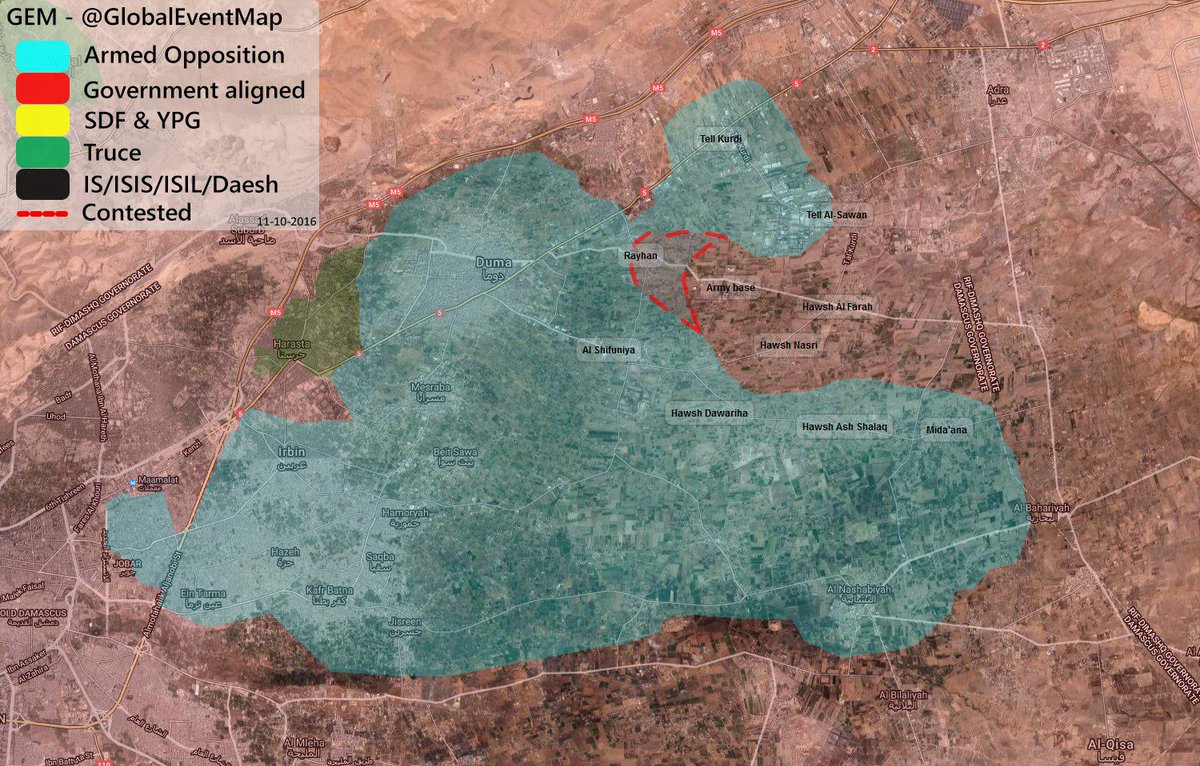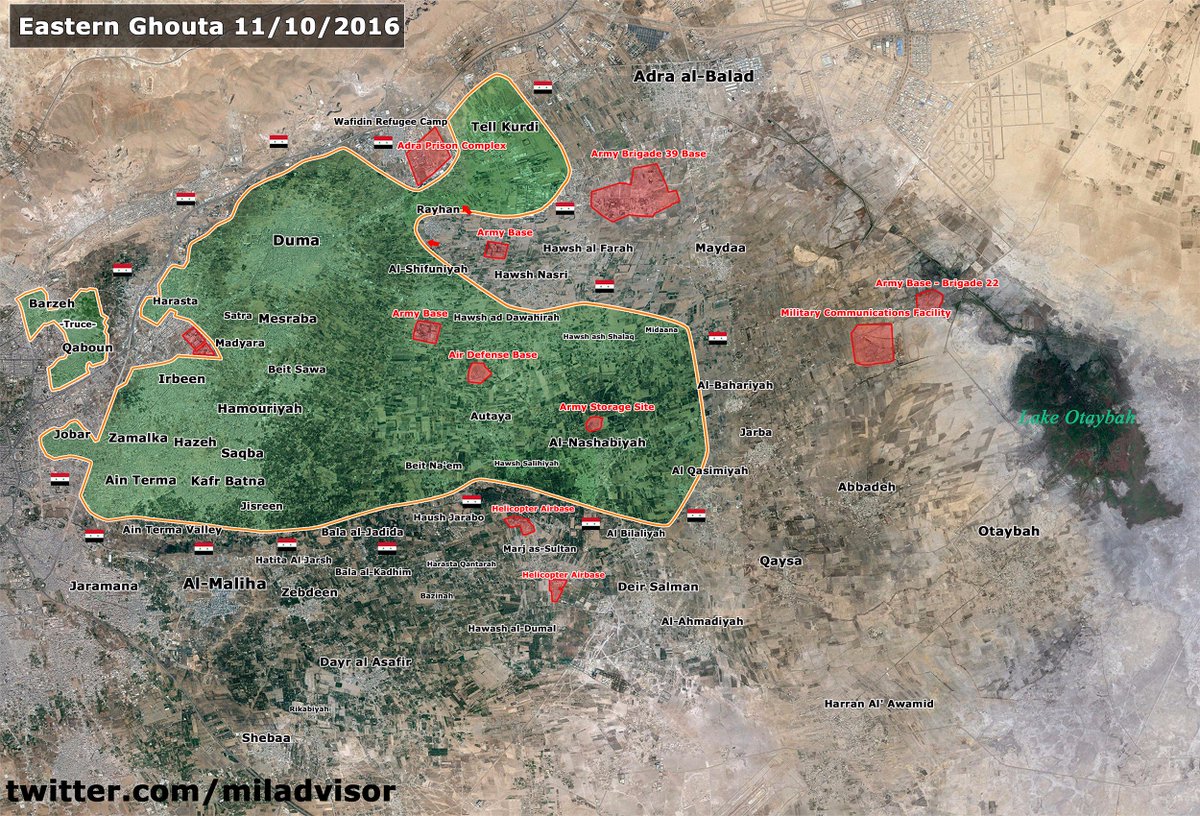Russia and Turkey plot the endgame in Aleppo
By
October 12, 2016 5:28 PM (UTC+8)
The visit by President Vladimir Putin to Istanbul on Monday marks the Russian-Turkish rapprochement taking a leap toward full normalization of relations. Energy cooperation provided the leitmotif.
The signing of the inter-governmental agreement on the proposed Turkish Stream gas pipeline and the consensus to expedite work on the US$20 billion Akkuyu nuclear power plant were important milestones.
Below the radar, Turkey is mooting collaboration in the military-technical field with Russia, NATO’s number one ‘geopolitical enemy’ at the moment. Turkish President Recep Erdogan conveyed to Putin an invitation for Russian companies to bid in a fresh tender on its first long-range air and anti-missile defense system.
It is a strategic call insofar as if Turkey selects a Russian air and anti-missile defense system, it will mean a stand-alone ABM architecture, since there is no ‘inter-operability’ possible between the Russian system and the US and NATO assets deployed in Turkey. Turkey is apparently leaning forward to build an indigenous system.
Subsuming these extraordinary developments, however, what transpired regarding Syria at the Istanbul summit would be what engages the international community.
The talks were held in highly restricted format. The sensitivity is only to be expected, given the surge in US-Russian tensions regarding Syria and Russia and Turkey’s high stakes in the outcome of the ‘Battle of Aleppo.’
On Monday, while Putin was holding talks in Istanbul, French Foreign Minister Jean-Marc Ayrault said Paris will turn to the International Criminal Court for consultations over how an investigation into war crimes in Syria possibly can be launched.
Evidently, Paris is acting on US Secretary of State John Kerry’s allegation that Russia and Syria are committing war crimes.
Again, France snubbed Moscow by scrapping a planned meeting between President Francois Hollande and Putin in Paris on October 19. And all this unfolded amidst the Russian veto of the French resolution in UN Security Council calling for halt to Russian-Syrian campaign in Aleppo.
Nonetheless, there is compelling evidence that the big energy and trade deals and investment plans between Turkey and Russia created a favorable ambience of trust and mutual benefit for Russia and Turkey to work toward harmonizing their differences over Syria.
Four signposts must be noted.
One, Moscow announced its decision to create a permanent naval base in Syria on Monday even as Putin arrived in Istanbul. But Turkey calmly took the announcement, although Moscow’s move underscores that Russia would be expanding not only its military footprint but its military potential in the Middle East. (By the way, Izvestiya newspaper also reported on Monday that Moscow is in talks with Cairo to open an air base in Egypt.)
Two, Turkey is blasé about the Russian veto of the French (western) resolution on Aleppo in the UN Security Council. It has no interest to bandwagon with the US.
Three, Ankara continues to maintain deafening silence over the on-going Syrian-Russian military campaign to take control of Aleppo. Turkey has excellent intelligence presence in the region and estimates that the ‘fall’ of Aleppo is to be expected. It has no appetite to challenge the Russian-Syrian offensive and is already looking ahead.
Finally, Turkey kept mum on the latest Russian deployments of missile defense systems in Syria, which de facto means imposition of a ‘no-fly zone’ over entire Syrian air space and would have implications for the security of the ‘safe zone’ Ankara vows to create in northern Syria.
Safe passage
Interestingly, Putin and Erdogan reached a consensus to build on the proposal of UN Special Envoy for Syria Staffan de Mistura that the rebel fighters trapped in eastern Aleppo could be provided safe passage out of the city.
The Russian and Turkish militaries and intelligence agencies have been directed to step up contacts.
Putin and Erdogan also discussed the modalities of providing humanitarian aid to the civilians in Aleppo, an issue on which Russia faces a barrage of western criticism.
The two countries’ militaries, intelligence and diplomats have been tasked to flesh out details.
Erdogan said, “We thoroughly discussed the Syrian issue. We talked about the Euphrates Shield operation and evaluated ways we can cooperate in this direction. We specifically talked about what strategy we may choose in order to help, from a humanitarian point of view, the inhabitants who are in a dire situation, especially in Aleppo.”
Putin noted, “We have a common stance regarding what must be done to deliver humanitarian aid to Aleppo. The issue is ensuring security for the deliveries of this cargo.”
All in all, the signs are that Russia and Turkey are inclined to develop a blueprint on Aleppo, while leaving the US and its western allies in the cold as mere onlookers.
Quite obviously, all this is not possible without reaching a broad understanding to harmonize the two countries’ differences over the Syrian question. Such an understanding can only be at a nascent stage as of now, but the signal from the Istanbul talks is that there is political will to move forward.
The tenor of the joint press conference in Istanbul by Putin and Erdogan suggests that the Russian-Turkish narrative on Syria has phenomenally changed. There is strong impetus for both sides to work together.
Turkey would see that Moscow has virtually slammed the door shut on any prospect of a US military intervention in Syria. It also would be seeing that Russia is in Syria for the long haul.
Therefore, Russian acquiescence over Euphrates Shield becomes vital. Erdogan can draw satisfaction that Moscow is displaying great reticence as regards Euphrates Shield and Turkish military intervention in Syria. Most importance, it is an existential question for Turkey that Russia is supportive of its staunch opposition to a Kurdish political entity appearing in northern Syria.
Inflection points
Broadly, there are three inflection points today – Aleppo, Raqqa and Mosul. Russia and Turkey are exploring common ground to end the fighting in Aleppo.
On Raqqa, Russia is concerned about any US-led operation to liberate the ‘capital’ of the Islamic State. So is Turkey, but from another angle, given Washington’s refusal to abandon its alliance with Syrian Kurdish militia in any such operation.
As for Mosul, given the defeat in Aleppo and the stalemate over Raqqa, the Obama administration is keen to showcase a ‘victory’ there before the US presidential election.
Not much resistance is expected from the Islamic State fighters numbering around 1000 in Mosul, but then, US and Turkey do not see eye to eye.
The US is not keen on Turkey’s participation in the assault on Mosul and in this, curiously, Baghdad – and, perhaps, Tehran too – happens to share the same view.
Meanwhile, all protagonists understand perfectly well that Mosul is as much a political question of far-reaching consequence as a fight against Islamic State. At stake is the future of Mosul and the wider Nineveh region.
Suffice it to say, for both Turkey and Russia, the fault line running from Aleppo to Mosul (via Raqqa) is important because it is along that fault line that the US strategies in both Iraq and Syria can be expected to develop in the coming period.
Paradoxically, this fault line, which runs parallel to Turkey’s borders with Syria and Iraq, conjoins Syrian and Iraqi conflicts at the hips, as it were.
Russia and Turkey would have a congruence of interests in curbing the US attempts to use Mosul’s future as a pressure point to create a certain balance of power in Iraq and Syria.




